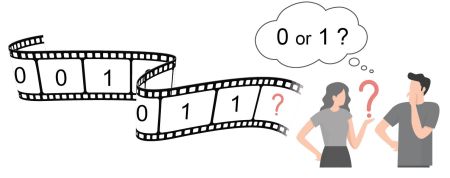
Researchers at Bar-Ilan University demonstrate that long sequences with certified randomness by the US National Institute of Standard and Technology (NIST) are far from being truly random.
Their work demonstrates that a large fraction of non-random bits can be systematically embedded in such bit sequences without negatively affecting their certified randomness. This discovery leads to a new type of classified secure communication between two parties where even the existence of the communication itself is concealed.
“According to the fundamental principles of quantum physics, the randomness of quantum random bit generators is expected to be perfect. In practice, however, this perfect quantum randomness may be diminished by many experimental imperfections“, said Prof. Kanter. “Hence, a sequence generated by a quantum number generator ultimately has to be certified by statistical tests which can differentiate between original quantum guaranteed sequences and spurious ones. However, the newly-discovered incompleteness of practical randomness is expected to disrupt even quantum random number generators.“
The new viewpoint presented in this work calls for a reevaluation of the quantified definition of measuring classical and quantum randomness, as well as its application to secure communication. (Bar-Ilan University)
